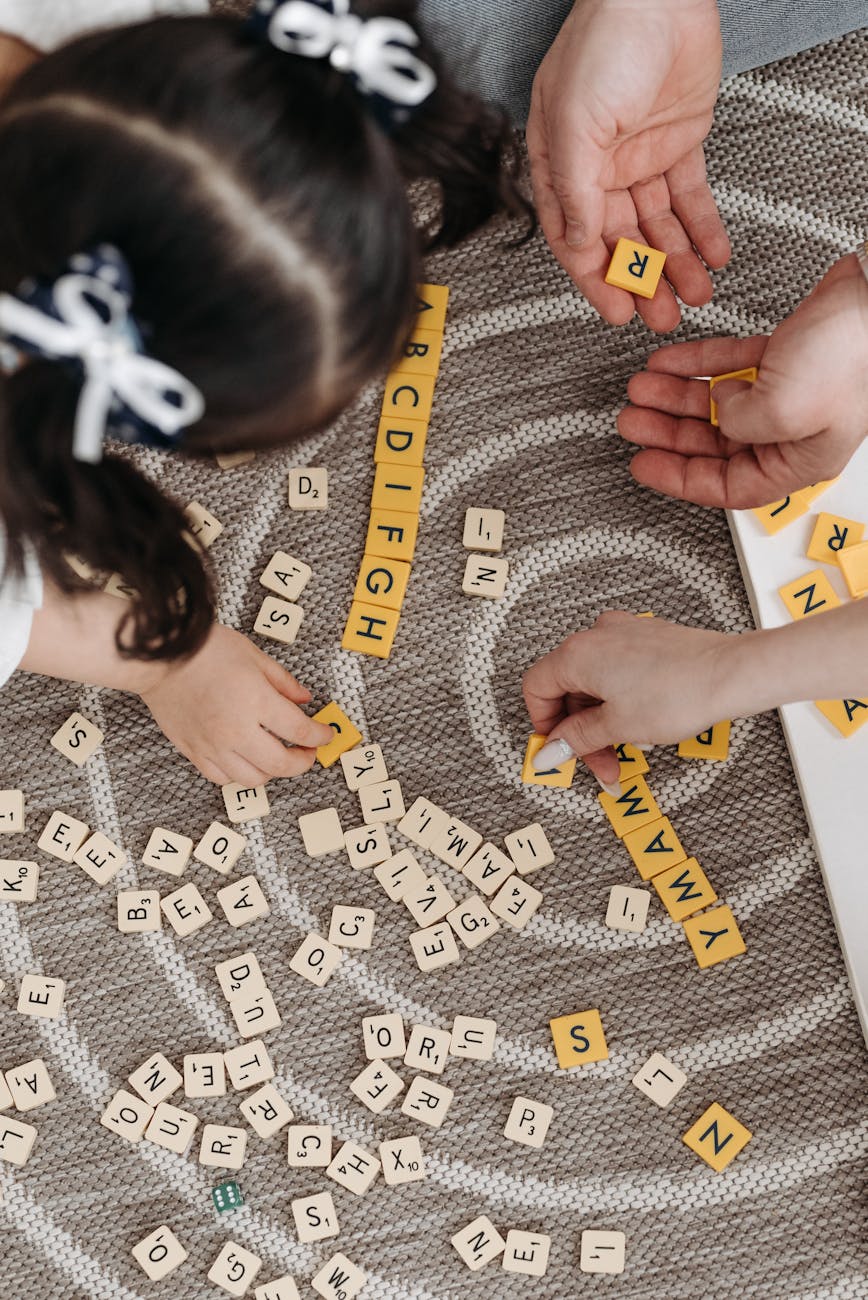Fun Ways to Practice /J/ Words With Kids at Home
Practicing /J/ words with kids at home doesn’t have to be boring or repetitive. Bringing fun and creativity into speech activities helps children stay engaged while improving their pronunciation of common sounds like /J/. Parents and caregivers can use simple games, storytelling, and arts and crafts to make learning motivating and memorable.
There are many practical ways to work on J words for speech therapy without feeling like it’s homework. Everyday activities, such as sorting objects or playing sound-based games, can naturally encourage children to practice saying words like “juice,” “jump,” and “jungle.” A J words list for speech therapy suggests plenty of ideas for target words and activities to try at home.
Always talk to your physician or another qualified health provider with any questions you may have regarding a medical condition.
Key Takeaways
- Use fun activities to practise /J/ words at home.
- Thematic games and play add variety to speech practice.
- Engaging practice helps children learn new sounds effectively.
Engaging Activities for Practising /J/ Words at Home
Children benefit from a mix of hands-on and interactive activities when mastering new letter sounds. Using various methods to target fine motor skills, letter recognition, and vocabulary can help reinforce /J/ words in effective and appealing ways.
Alphabet Practice and Letter Recognition
Alphabet activities help children build a foundation for reading and writing. Focusing on both capital and lowercase letters, parents and caregivers can use tracing worksheets, alphabet mats, or tactile activities such as shaping the letter “J” from playdough.
A letter of the week approach works well in kindergarten settings or at home. Displaying visual reminders—like letter cards and fridge magnets—supports constant exposure. Games, such as matching an object to its beginning sound (e.g., finding a toy jet for “J”), strengthen both letter recognition and awareness of letter sounds. Using hands-on activities is essential for developing early literacy skills.
Creative Writing and Handwriting Practice
Creative and structured writing practice can make a big difference for children learning /J/ words. Journals encourage kids to practise writing simple sentences or jotting down words that begin with “J,” such as “jump,” “juice,” or “jacket.”
Providing printable handwriting practice sheets allows children to focus on proper letter formation, size, and spacing. This improves fine motor skills and prepares them for more advanced writing tasks Try setting aside time each day for writing activities. Lists, labels for objects, or quick drawing-and-labelling prompts help reinforce the connection between letter sounds and writing.
Interactive Games with Flashcards and Sight Words
Flashcards and sight word games keep children engaged while targeting /J/ words. Parents can create flashcards with images and simple j words, like “jar” or “jungle.” These can be used to play memory or matching games, supporting both vocabulary and visual recognition.
Incorporating games and flashcards strengthens beginning sound identification and encourages repeated practice in a playful way. Quick rounds of “find the word,” where kids point to or read the correct flashcard, turn learning into a fast-paced activity. For extra practice, mix in sight words with and without the /J/ sound. This helps children distinguish /J/ words from others, further improving their reading skills.
Thematic Learning with /J/ Words
Practical activities that embed /J/ words into themed learning make language more memorable. Children engage more deeply when they encounter words like “jungle,” “journal,” and “giant” in diverse settings through stories, nature, and hands-on packages.
Storytime With Magic and Adventure
Reading stories featuring /J/ words offers repeated exposure in a meaningful context. Classic tales such as Jack and the Beanstalk introduce words like “jack,” “giant,” and “journal” naturally in the plot. These stories often involve magic, which can captivate attention and make practice enjoyable.
Discussing story elements after reading helps reinforce pronunciation. Children can draw their favourite scenes, label characters using /J/ words, and create their own mini “journal” about the adventure. This approach integrates literacy with speech sound practice, making it both interactive and educational.
Exploring Jungle Themes
Jungle themes offer rich visuals and vocabulary. Using toy animals like “jaguar” or “jellyfish,” families can set up a pretend jungle safari in the living room or backyard. Activities include hiding /J/ word cards around the “jungle” for a scavenger hunt or making a table of jungle animals and their sounds for repeated /J/ practice.
Visual aids such as illustrated jungle maps and animal flashcards encourage word repetition in a fun, low-pressure setting. Songs about jungle animals, or simple puppet shows starring a jaguar or jungle giant, keep sessions lively and engaging. Incorporating physical movement, such as “jump like a jaguar,” also supports learning.
Fun Learning Packages and Activities
Curated learning packages provide structured ways to reinforce /J/ sound practice at home. These kits often include printable worksheets, matching games, and small crafts focused on /J/ words like “journal,” “juice,” or “jar.” Packages may feature writing prompts encouraging children to start a daily “journal,” use stamps to spell out /J/ words, or assemble a picture book about a jungle or a giant.
Short, varied activities maintain interest and provide opportunities for frequent repetition. Including quick drawing prompts, sorting games, or flashcard drills from free online resource collections helps maximize practice while keeping children motivated and on task.
Conclusion
Practising /j/ words at home helps children build clear speech and confidence. Simple activities make learning the /j/ sound more effective and enjoyable. Consistent repetition using games, crafts, and everyday conversations supports progress. Small, daily practice often leads to steady improvement.


Leave a Reply
You must be logged in to post a comment.